- From Faith Current: “The Sacred Ordinary: St. Peter’s Church Hall” - May 1, 2023
- A brief (?) hiatus - April 22, 2023
- Something Happened - March 6, 2023
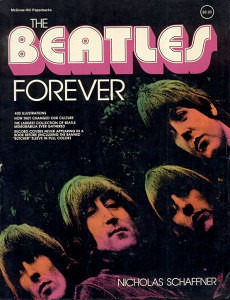
I read this book until it fell apart. I still have the pieces on my bookshelf.
Commenter @ChelseaQW said something in our gargantuan thread today that really resonated with me. I wanted to surface it in a post, on the off-chance it resonated with some of you.
“Traditional Beatles fandom (and ‘journalism’) is SO dominated by straight white male baby boomers and — with all due respect to everyone involved — I am soooooo tired of hearing that stale perspective, over and over again.”
The editor in me is very, very proud of this comment; much of my interest in the “Were John and Paul Lovers?” post was highlighting my sense that the Beatles seem to mean very different things to fans of different identities, in the hopes that readers would take the ball. And you have!
This is, IMHO, excellent news for all fans of the music — the psychic mutability of the group suggests that the Beatles phenomenon will last, long after things like Jann Wenner and Apple Corps are gone. “Where John and Paul Lovers?” is by far the most popular post in the history of Dullblog, which to me suggests that the flexibility and universality of the Beatles and their story seems to be what Beatlefandom is about right now. The Beatles forever — but whose Beatles, and for what?
Over the weekend, Kate and I listened to a marvelous episode of “You Must Remember This,” Karina Longworth’s wonderful podcast about lost and forgotten history from Hollywood’s first century. The episode was called “The Lives, Deaths, and Afterlives of Judy Garland,” and described (among so many other things) how gay fans turned this consummately talented performer wrecked by Hollywood into an icon which was deeply meaningful to them, useful and comforting and even political. If you have any interest in the topic, I highly encourage you to listen to it.
The Beatles are similarly mythic, and are constantly being repurposed to fit the needs and desires of their fans. Today, we know that the important thing about Judy Garland isn’t who she was in 1939; to freeze her in her moment of largest mainstream appeal, the Mickey Rooney period, would be preposterous — you would miss everything that was extraordinary about her, and most of what has lasted. But go to Beatlefest, or read Rolling Stone, or listen to Beatlefan’s podcast, and you get a single vision of the Beatles, over and over. Ed Sullivan; the Mania; Lennon Remembers; John Vs. Paul; The Ballad of John and Yoko; chart-toppers and reminiscing. What seems to be important about the Beatles is their commercial success, and the indelible impact they had on white guys, and a few women, living in the Tri-State area in the early Sixties. I swear, half the time I expect them to start talking about Carvel ice cream.
I’m not saying these perspectives don’t have some truth to them, they do. Nor am I saying that they aren’t evocative to some people — they remain powerful. My parents, for example, seemed genuinely pained when I told them fifteen years ago that John and Yoko’s marriage didn’t seem to be all that great. But the myths beloved by Boomer Beatlefans aren’t the truth, and they aren’t even the most interesting perspectives anymore. It’s time for other groups, with other perspectives on John, Paul, George and Ringo, to have their say.
The Beatles Forever
When I was a kid, one of my introductions to the Beatles was a lovely book called “The Beatles Forever” where, with lots of pictures, Nicholas Schaffner detailed the history of the group, interspersing it with his own experiences as a Beatles fan growing up in New Jersey. In those pre-Goldman, pre-Anthology days, it was a great book. It’s still great, if you’re nine.
But unlike, say, paper miniskirts and the VW microbus, the Beatles are not an artifact of the Sixties; nobody, not even Millennials, likes the Beatles ironically. Nor are John, Paul, George and Ringo the property of the Baby Boom generation — with every year, and every remix, it’s clear that they’re much, much bigger than that. Yet they are endlessly claimed by the Boomers, and while this is usually called nostalgia, I think it’s more an attempt at reflected glory. “We are the generation that recognized them as geniuses; we supported them; we followed them.” And this is true, as far as it goes — but many of the issues that we discuss on this site are the result of some Boomer trying to shrink the Beatles to fit compactly into his (almost inevitably his) own life story. Shout! is what it is, in my opinion, because it was a fundamentally cynical attempt to give Boomers the story they wanted, in exchange for cash. And The Lives of John Lennon is the same thing, only in reverse.
Being born in 1969, I’m used to listening in on the Boomers talking to themselves and calling it truth. But it’s time to admit that, if the Beatles are worth thinking about, they’re worth really thinking about. This is, perhaps, why I found Beatlefest so unsatisfying. Unlike the LOVE show at the Mirage, Beatlefest seemed to rely on an earlier shared experience. Every talk I went to, the author asked for a show of hands: “How many of you saw the Beatles on the Ed Sullivan Show?” And there was an authority conferred via that. It’s the same authority that makes certain fans react with scorn when it’s suggested that John made a pass at Paul. As if they knew John and Paul intimately, simply because they bought all the LPs the day they came out.
The Baby Boomers have a lot to say on the Beatles, and much of it is valuable. They will, via numbers and proximity, always provide the main thrust of the narrative. But like @ChelseaQW, I want to hear more and different perspectives. What did the Beatles mean to the queer community in the 60s and beyond? To women? Or African Americans? (The conventional answer is, “Little to nothing,” but I simply don’t believe that. The Beatles are simply too big a cultural phenomenon for any group to evade.) What do the Beatles mean to a person under 25? Who didn’t even watch Anthology when it first came out?
Finally, through the scrim of Boomer wish-fulfillment, it’s important to remember that the Beatles themselves were not Baby Boomers; they were, like most of the people who made the Sixties go, products of an earlier generation. Check out Joshua Glenn’s Hilobrow for an in-depth discussion of this group. The Boomers knew a great thing when they heard it, and for that we should all be grateful — but the Beatles were the product of a totally different time and place. Their story is not the Boomers’ story. They are much more complicated, and that’s a good thing.
What do you all think?



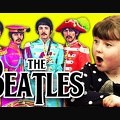

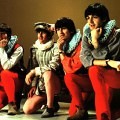
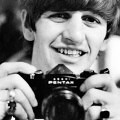
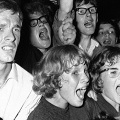
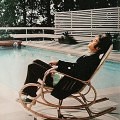
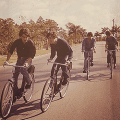

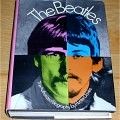
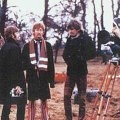
Here is my perspective:
In my experience, males fans have always seemed more interested in minutiae such as dates, statistics and chronology, whereas female fans are more interested in the emotions behind the music and the relationships amongst the people involved (i.e. the Beatles themselves). I know that is a gross generalization (and of course there are a million exceptions), but that’s my anecdotal experience. The one thing both groups have in common is that we love the music. But I feel like we often sharply diverge in other aspects of fandom. The thing that’s very bothersome to me is how the feminine interest in the Beatles relationships has been routinely ignored and sometimes actively silenced by the “mainstream” (i.e. straight white male boomers) fandom. Several posters in the “Lovers?” thread told stories of being banned and deleted from various websites simply for asking questions that don’t have simple and/or satisfying answers. WTF is that about?
There is a segment of Beatles fans/historians that are overly invested in the post-break-up animosity between Paul and John, or more specifically of John towards Paul. I’m no shrink, but it seems to me that this is most likely due to how uncomfortable they are with Lennon/McCartney’s obvious closeness prior to the break-up and consequently how unwilling they are to analyze it in any meaningful way. Pitting John and Paul against each other helps erase this discomfort. In my opinion, this is a prime example of how people’s prejudices prevent them from looking at people and events objectively.
Also, can I just add, @Michael Gerber: that was a beautiful post! (I should’ve said that first, sorry!)
I read, write, think, listen and live a LOT about race, gender and sexuality so I care about this topic. But I’ll try to refrain from lecturing the choir on why diversity is important…
But can I just say? To suggest that women are not an ESSENTIAL part of Beatles fandom is patently ridiculous and more than slightly offensive. Is anyone familiar with a phenomenon called “Beatlemania?” The Beatles did not become a cultural superpower simply on the strength of the quality of their music. Obviously it’s the biggest reason, but it’s clearly NOT the only one. Does anyone take the time to examine the hordes of young women in orgasmic ecstasy at their performances? I’ve only ever read this tired, sexist take AD FUCKING NAUSEUM: “Oh, you know how bitches be crazy! Obviously they’re just acting silly and being dramatic!” This is akin to believing that women can’t have orgasms (boy, that wasn’t long ago, was it?), and that they don’t have real sex drives. It either confuses male writers or doesn’t interest them (who cares what makes girls so horny they pass out?). But I can speak from personal experience (which I think is what Michael asked us to do) and try to explain what it was like to be thirteen years old and see the Beatles perform for (essentially) the first time. I had never seen anything like them before, and they blew my fucking mind. I remember feeling as ecstatic as all those screaming girls in the audience. I was not familiar with the word “homoerotic” or even the concept (and was too young to process what that meant for probably another year or two) but something about them was… not gay, but fluid. The Beatles have always struck me as very fluid, in regards to gender and sexuality. How much of that is perception versus reality? I can’t say. But it was obvious and striking to me at 13 and still is. Most people I know (male and female) feel the same way.
The point is: would a generation of young women lose their minds in ecstasy over any ONE of the Beatles performing alone? I highly doubt it. Maybe it owes something to their matching uniforms, and their long hair and them singing love songs eyeball to eyeball into the same microphone. The curious part to me is… was this calculated or even intentional? If it was intentional, that speaks to so much sexual awareness on their part. If it was unintentional (which I personally think it was), that speaks to so much subtext in their chemistry. Either way, I find it interesting. And this is one example of something that is under-explored (OMG, an aspect of the Beatles that HASN’T been written to death! Can you imagine?).
I’m speaking as a boomer so not the perspective you’re after, but I’ll toss in my two cents (or is a dollar, by now?) for what it’s worth.
—
—
In defence of my brethren, I would offer this: if boomers “try to shrink the Beatles to fit compactly into his (almost inevitably his) own life story”, then so do the legends of fans that came later. Cripes, you can’t walk an inch in any direction these days without walking into a young beatle fan who waves the JohnandYoko peace and love flag in your face and refuses to think of John in any other way, as if his beatle past was irrelevant.
—
—
You cannot underestimate the power of having ‘been there’, as boomers were–and it’s not because of something so simplistic as having “bought the first LP’s when they came out.” I wish I could explain to younger fans how it was to experience the fabs first hand–especially if they’re not interested in finding out. And that’s sad, because if non-boomers could feel, if only vicariously, the absolute thrill of Beatledom as it happened–well, they’d have a taste of Eden.
@karen, your perspective is absolutely what I’m looking for here–the more perspectives the better! And I would LOVE to hear any attempts to try to explain he thrill of what it was like to experience it first-hand. I don’t think anybody’s actually succeeded at that, though many have tried.
More, please — more voices, of all sorts.
“And I would LOVE to hear any attempts to try to explain he thrill of what it was like to experience it first-hand. I don’t think anybody’s actually succeeded at that, though many have tried.”
That would be a post in and of itself. The short answer is: take your worst experience, as in individual or as a member of society, and flip it. Beatlemania was the antithesis of every negative.
The short answer is: take your worst experience, as in individual or as a member of society, and flip it. Beatlemania was the antithesis of every negative.
So post! Post in ten parts, if you want! I’d love to hear all about it.
= if boomers “try to shrink the Beatles to fit compactly into his (almost inevitably his) own life story”, then so do the legends of fans that came later=
For sure! We all filter information through our own experiences, of course. Boomers are no more guilty of this than anyone else. I guess the trick is to have as many different perspectives as possible. The best/most insightful ideas should rise to the top, and diversity only helps to improve the quality of the conversation.
=You cannot underestimate the power of having ‘been there’=
I don’t doubt that either. I feel this about NYC in the early 90’s (that’s my coming-of-age era).
My frustration is not with Boomer fans per se, but with the Boomer domination of the media which has restricted the discourse on the group. It’s why I keep this blog going, and why for every comment, I want ten.
What I personally like about the discussion lately is how it’s made plain how provisional and speculative all of my opinions are — how changeable, and in service to a larger truth, murky and undefinable, that necessarily lurks within this topic, explaining both its initial power, and its enduring hold.
The relationship of female sexuality and the Beatles is a topic above my paygrade, and outside my ken. It’s worth a Joan Didion, if not a Sontag. All I can say is to remind everybody just how deeply threatening the Beatles were to the sexual status quo, and how the nature of that threat seems to have been a subversion of gender roles — but that truly is something only first-generation fans can speak to with authority.
I will say that, to me, sex is the primary driver of the Beatles story. Not for nothing was it the sexual cauldron of the Reeperbahn — that school of feeling and stoking desire — that turned four teenagers into the Beatles; but to hear the story, it was merely coincidence, a colorful detail. And it was Brian’s sexual attraction that made him sign the group and keep pushing until they got a contract.
Sex is the alchemy at work here; physical love, and emotional–tight trousers and beautiful love songs working simultaneously. Yet our culture, sex-negative yet soaked in commercialized, commodified sex, works to blind us to this truth. And because the so-called sexual revolution of the 60s was really just straight white hetero males being given greater license, and everybody else having to wait for the next revolution, or the next, anything that is not straight white hetero desire, has to be downplayed in the Beatles story. Brian is given a pass — he’s grandfathered in — but only if he did what John said he did: played the passive, pleading female role to the big strong Chief Beatle. But human sexuality isn’t that simple or tractable, the interplay is, to use Chelsea’s word, fluid.
While it’s the men who write the books and speak for the fandom, there’s a case to be made that none of us straight guys get any of this. Female shrieks and dampened panties was what Beatlemania WAS. Unbridled, primal, outside of the control or approval of fathers or husbands or boyfriends, and just 10 years after Kinsey’s report on the Human Female. Beatlemania was a form of female-driven mass sexual ecstasy, like the bacchanalian mystery religions of antiquity; and the Romans in power in 100 BC, reacted just as 60s men reacted. In fact, maybe that’s what we’re on about here at Dullblog, celebrating a modern mystery religion. It would explain a lot.
If the Beatles ever did fulfill Leary’s hopes for them, it was not as avatars of drugs or meditation or politics, but of sex and relations between the genders. The bogus dichotomy between the Beatles and the stones was an attempt to domesticate what was going on, to rein it all in with a new version of taboo — but it was too primal for that.
I would like to make out with your post, @Michael, for it is beautiful.
In the interest of full disclosure, I’m queer (in the modern sense of the word, where I don’t find any of the existing labels useful to describe my sexual identity) as were/are most of my friends in high school and college. So I came up in an environment where it was absolutely normal for straight people (male and female) to experiment with gay sex, gay people to experiment with straight sex, etc. So, for example, it is hard for me to relate to the idea that people of the same sex can’t be in love with each other because they are “straight.” My brain just doesn’t work like that. And in fact all my logic and experience contradicts that idea so it rings patently false. However, I came up in the 90’s and I realize that is significantly post-sexual revolution. (It’s almost “post-AIDS,” as a matter of fact. I remember from high school that all of our gay elders were completely traumatized by AIDS and had a real disconnect from us kids who were so loose with terminology and identity. We were like, “Yeah, we got it, we’ll use condoms. Now stop trying to pigeonhole us.” But I digress…) And of course my perspective colors how I see people and events, but I will try to speak on that.
It is often pointed out that the Beatles were raised in a very restrictive environment (time and place), where homosexuality was illegal, shameful, etc. And obviously that is both true and very important to the context of them as a cultural phenomenon. But it’s also obvious that they had a certain… familiarity? comraderie? with gayness. Brain Epstein is hardly the only gay person in the Beatles circle. They sometimes seem to be more comfortable with gay men (or men like George Martin) than typical hetero dicks. My personal feeling is that even though I don’t see the individual Beatles themselves as queer, I do see the Beatles as an entity to be a little queer. Does that make sense?
Let me propose this idea… You don’t have to actually be gay to be the victim of homophobia, right? I mean, men and boys are routinely bullied and victimized for stepping outside their assigned gender roles. An impression I’ve gotten from John’s and Paul’s (and Ringo’s, actually) childhoods is that they were (from time to time, if not constantly) picked on for not being tough/manly/stereotypical enough. These were two incredibly sensitive and romantic dudes, in an environment that really has no use for that sort of thing. I think this is a huge part of why they bonded so intensely and so quickly, because each one helped assuage the other’s anxiety at being different. If you’re “different” and you finally meet someone like you, who understands you, all of a sudden you go from being “different” to being “special,” right? They validated each other. In this case I’m not talking about sexuality at all, just the tender emotional lives of teenage boys. But it’s easy to see that John and Paul pushed the boundaries of what it meant to be male and emotive and loving and heterosexual. So it’s also easy (for me) to imagine that if that’s the case… being a straight guy can be very restrictive and sometimes it’s easier to relate to a gay person, who seemingly has access to behaviors and feelings that you, as a hetero male, do not.
I absolutely agree that sex is important to the Beatles story. But sex still scares the crap out of A LOT of people, which is why it is so hard to get an open dialogue going about it.
To continue this thought… I think the Beatles actually did a tremendous amount of work in expanding our ideas of acceptable male behavior/emotions and male bonding/friendship. I never think they get enough credit for this. (Of course they didn’t single-handedly mastermind the entire sexual revolution, but I think their role is underplayed, if anything) I don’t know how much they helped the LGBT community, if at all. Perhaps they did in a trickle-down theory of civil rights (I think I hate myself for just typing that).
But I think the real beneficiaries of the Beatles (on a sociological level) are straight men. Which, ironically, are the same people I am complaining about for dominating the narrative. I don’t know if that speaks more to straight, white, male privilege (the beneficiaries refuse to acknowledge the courage and hard work of the Beatles) or to my perspective as an outsider.
I don’t know if that speaks more to straight, white, male privilege (the beneficiaries refuse to acknowledge the courage and hard work of the Beatles) or to my perspective as an outsider.
The main thing about being a straight, white, cisgendered male is, when you get goodies, it feels like business as usual.
@Chelsea, this post should be bronzed and hung on a wall. There’s so much here to talk about.
I think the difference between how your generation looks at sex/gender/identity, and how previous ones do, is as big a gulf as the sexual revolution of the 60s. If you talk to people of the so-called “Silent Generation” of the 50s, they regard countercultural sexual mores with a mix of admiration, envy and utter confusion. But it’s important to remember that what we call a “sexual revolution” was just a reclaiming of what was already there; it is a decision to accept what is, to forgo neurotic judgment and repression, not something new under the sun. For example, wherever you have humans, you have trans people; the difference is, are they normalized — priests of Magna Mater — or are they shunned? To me, shunning is insane. And what did John Lennon say in 1968? “Our society is run by insane people for insane objectives. I think we’re being run by maniacs for maniacal ends and I think I’m liable to be put away as insane for expressing that. That’s what’s insane about it.”
Your characterization of all four Beatles being men who didn’t really fit into the narrow masculinity of their time, and yet were driven by temperament to be on the edge of it — art school, anyone? — feels very accurate to me. They could not be otherwise; and sooner or later, all four of them surely looked at a gay man or woman having a rough time of it and thought, “There but for the grace of God…” So the moment they got to know gay people, they would feel some affinities. To be an artist in Liverpool in 1957, was to be a rebel from the start. This explains John’s friendship (and I suspect more) with Stu very clearly. As a painter, Stu was following an older societal pattern, John a newer one, but both of them were brother rebels at war with the status quo, in a way that ten years later they wouldn’t be — unless they were sister rebels. The Sixties were made by people who grew up in the 40s and 50s. That’s what makes them so explosive; and it’s the claiming of that freedom by the rest of society that has been happening ever since.
But it’s also obvious that they had a certain… familiarity? comraderie? with gayness.
This cannot be emphasized enough; and of course they would, because that was where the freedom was. Their instinct was always to go where the freedom was — that’s why showbiz everywhere is gay, just as the art world is. Epstein was merely the tip of the iceberg, as far as the Beatles’ commerce with homosexuals is concerned. To me — where I’m coming from, and YMMV — the Beatles seem inherently queer. They reject the imposed societal norm; are determined to assert their differentness, not apologize for it; they are utterly at home with who they are; and they reserve the right to define themselves, and change at any time. They are fluid — open, human and free — and that’s why I love them so (and why, for example, the Stones bore me — they seem like a repackaging of old gender norms).
One of the things that’s really tough to get across about the 70s (when I grew up) and certainly the 60s (so I’ve been told) is the amount of Gay Panic and misogyny mixed in with all the supposed liberation. When people crack on the hippies, they usually blame them for not being able to remake the entire world between 1967-72, but the real flaw is how the counterculture was only marginally better (and in some cases no better) than straight society when it came to sexual and gender openness and equality. Too often, male hippies proved their masculinity by putting down those less masculine (women, and gays) — “I may have long hair, Dad, but I’m no fairy!” I think that’s a huge driver of Lennon pre-acid; less so for Paul. And it’s because Paul is more secure in his sexual identity that he can be “softer” in his work.
And now we bring in Yoko Ono. To women who grew up in the counterculture, she is often a liberating figure. The woman-on-top sexual politics of “the ballad of John and Yoko” are tremendously powerful to some people. To me, coming from where I came from, I don’t get that. I see a woman who’s basically a dominating, macho dick; and John’s attraction to her as a depressing rejection of his own personhood. But horses for courses.
I think this is a huge part of why they bonded so intensely and so quickly, because each one helped assuage the other’s anxiety at being different.
I think, right there, that’s the story of the Beatles. And because each one of us is different, it’s the story of their success, too.
…and I wanted to add: ditto everything Chelsea said.
“In those pre-Goldman, pre-Anthology days, it was a great book. It’s still great, if you’re nine.” That’s more shade than a tall oak tree, Mike!
.
The thing that continues to fascinate me most about the Beatles is how multifaceted they and their work are. The very fact that the “John v. Paul” argument (or the “George was actually the best” argument, or [insert any other longstanding Beatles argument here]) continues points to that multidimensionality. People inevitably gravitate toward the period of the Beatles’ work, and the individual Beatle, that speaks most directly to them. Nothing wrong with that, except that it’s easy to clamp down on one’s individual perspective and assert that it’s “right.”
.
As for the Boomer domination of perspectives on the Beatles, it’s already passing. We’re only a few decades out now — very early in the history of any art that endures. In another 50 years the landscape of talking and thinking about the Beatles will look quite different, I think. Rather like (to harp on my Charles Dickens fixation once again), the difference between Dickens’ reception in his lifetime, biography/criticism of him in the first part of the 20th century, and biography/criticism of him now. The Boomers’ perspectives will remain crucial, because they’re part of the “primary source” material on early reception of the band. But I don’t think the narratives constructed by Wenner, Norman et. al. are going to stand the test of time.
That’s more shade than a tall oak tree, Mike!
Oh, no! I didn’t mean it to be a slam — it’s honestly how I feel. I wouldn’t give my nephew Anthology; he wouldn’t get into it at all. But he would LOVE a book like The Beatles Forever. I still think of the pictures in that book.
one’s individual perspective and assert that it’s ‘right.’
…and it is, for them. And that’s fascinating, because what one loves is probably the truest window into one’s soul, don’t you think? Which is why bullying someone over a harmless love like which Beatle is best, or which LP is best etc, is such a nutty and appalling thing to do. Someone is showing themselves to you! That’s a million times more interesting than having them simply agree.
BTW, if I recall correctly Nancy, you’re a “George was actually the best” woman, right?
I’m just glad this blog tolerates my Paulinist leanings!
.
The whole “we agree on loving the Beatles; now let’s choose up sides and fight” thing increasingly strikes me as fruitless and boring. I’m happy that discussions on HD don’t tend to go that direction.
“The whole “we agree on loving the Beatles; now let’s choose up sides and fight” thing increasingly strikes me as fruitless and boring. I’m happy that discussions on HD don’t tend to go that direction.”
As a Generation Y’er who discovered the Beatles through my parents — who liked all the Beatles equally — I found the John vs. Paul schism in Beatles fandom surprising and somewhat sad. Not picking a favorite Beatle — that’s human nature, and would actually make a pretty interesting psychology question. But there seems to be a small section of fandom that believes that appreciating Paul’s genius somehow diminishes from John’s, or vice versa, that every discussion regarding every issue must concern which one was superior/inferior at that particular moment. I agree that its fruitless and boring, but I think its also ultimately obscuring. That Beatles historiography has been obsessed with this “John Vs. Paul” debate ever since 1970 is, I believe, one of the key reasons so much of it has been poorly written and methodologically flawed: writers and fans have been approaching the band’s story under the wrong initial premise.
It’s fascinating, why Frank Sinatra/Elvis Presley/The Beatles/Justin Beiber (and all the rest who will follow) have that effect on young female fans. Why do female fans act with such unbridled, sexual enthusiasm? Is it just a simple gender difference in our sexuality, or is it because these male celebs allow females a safe outlet to express their sexuality as a collective?
That’s something I’ve often wondered about. One of the main reasons the Beatles and others got into music was “to get girls”. Even the nerdiest kid becomes more attractive to women when he’s up on stage, but the opposite isn’t the case. Debbie Harry was just as attractive to men when she was a waitress, and Janis Joplin didn’t become a pin-up after she sang at Monterey.
Women have evolved to be attracted to successful men, because it gave their offspring a better chance of survival. They don’t experience the same level of sexual jealousy as men, because they could always be certain that the baby was theirs. Maybe this is why they’re happy to scream together with their peers at the alpha males up on the stage, while adolescent boys prefer to fantasize about their friend’s sister in private?
…Janis Joplin didn’t become a pin-up after she sang at Monterey
 Talent is the only truly durable form of beauty.
Talent is the only truly durable form of beauty.
Something I’ve always longed to write an apology note for.
As an interested outsider, @Karen, it’s always struck me as a way for women and girls to express good, clean lust without consequence. It’s all in there — there are eight billion of us! — but patriarchy’s gonna patriarch, so it comes out in a scream at a concert. What’s even more interesting is the degree to which the screamer recognizes it as sexual herself. Most must, surely? But it works just as well for those who don’t (yet?).
I gotta say, though — Beatlemania has always struck me as pretty terrifying. I think the only way you could manage to handle all that desire being focused on you was to get used to it by degrees. Which is how they did it.
I would LOVE to hear more people of color speak on the Beatles. In my experience, Beatles “fandom” is super white, but enjoyment of Beatles music certainly is not. Anyway, I’d love to hear/read a conversation about Woman is the N* of the World versus Blackbird. Talk about a beautiful Lennon/McCartney contrast! Both are about race and gender but oh so so so different. (Blackbird reads like a Maya Angelou poem, whereas WITNOTW reads like… something else)
To my co-Boomer, Karen: I love you! You have a way of hitting the nail squarely on the head. Amen to every word of your Nov. 29 (7:47) post… with the eensy exception of “legends” when I think you intended to write “legions”. There is no conveying the momentous explosion of joy The Beatles unleashed on the world. I’m about to make myself look ridiculous, but wot the hey. I’m a big Emily Dickinson enthusiast. (Her birthday will be Dec. 10th– everybody have a cupcake). In one of her letters, she wrote what I’m about to type out here. If you’d ask me, at the end of it, there should be a stage direction [Enter, The Beatles] :
“But the world is sleeping in ignorance and error, sir… And we must be crowing-cocks and singing-larks, and a rising sun to awake her. Or else, we’ll pull society up by the roots and plant it in a different place. We’ll build Alms-houses, and Transcendental state prisons, and Scaffolds…. We will blow out the sun and the moon and encourage invention. Alpha shall kiss Omega. We will ride up the hill of glory– Hallelujah, all hail!”
@ Linda: “with the eensy exception of “legends” when I think you intended to write “legions”.” Dang, I didn’t catch that! (I shall blame that on autocorrect and my clumsy thumbs.)
—
—
Love the Dickinson quote. I”m a fan too.
“When I was a kid, one of my introductions to the Beatles was a lovely book called “The Beatles Forever” where, with lots of pictures, Nicholas Schaffner detailed the history of the group, interspersing it with his own experiences as a Beatles fan growing up in New Jersey. In those pre-Goldman, pre-Anthology days, it was a great book. It’s still great, if you’re nine.”
I think you’re confusing that book with Rob Schaumburg’s “Growing Up With The Beatles”, which was the other photo-filled book owned by most of us nine-year-olds then. While the Schaumburg is still a guilty pleasure of mine, the Schaffner remains worthy if only because of how much information hasn’t been debunked by future additions to the Beatle bookshelf.
Never heard of the Schaumberg book, @wardo–and I should probably tweak that line, because you are the second person to comment defending Schaffner’s book. I don’t mean to disparage The Beatles Forever at all, only to say that its vision of the group and their history is very, very Standsrd Narrative. As such it (like, say, The Compleat Beatles) is an excellent place for young fans to begin–but it is likely to be less interesting/useful for older fans, not only because they’ve read the info before, but because their greater life experience will probably make the Standard Narrative not very satisfying.